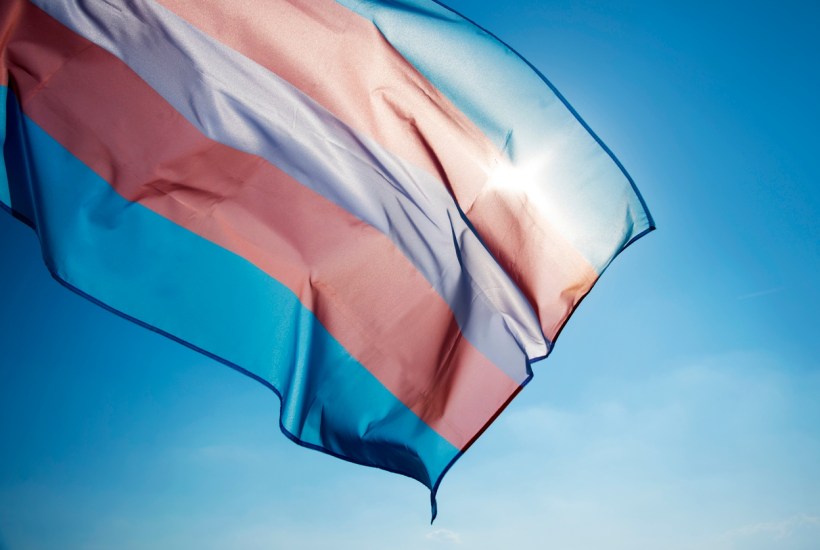The New Year Honours list included an OBE for Kathleen Stock, a professor of philosophy at the University of Sussex. Recognised for her services to universities and the higher education sector, Stock’s achievement was something that should have been celebrated by fellow academics. Instead, hundreds of her peers wrote an open letter denouncing her and many activists began to harass her. Why? Because Stock believes that people cannot change their sex.
This might sound like just another row between academics that has no relevance to the outside world. But it is emblematic of a much wider – and more sinister – phenomenon: the hounding of women who dare speak out on trans rights. Across our public institutions women are being harassed and, in some instances, fired for not adhering to the new gender identity orthodoxy.
It is possible that you may have heard Stock’s name mentioned alongside other female professors like Selina Todd and Alice Sullivan for the simple reason that they have appeared in the press following spats about being ‘cancelled’ or ‘de-platformed’. Their opponents often cynically point to the media’s interest in these cases – even to articles such as this one – as evidence that feminist academics aren’t really being cancelled. After all, how can you cancel someone when they are being openly defended in a national newspaper? But this is a deliberate distortion tactic, used to downplay the seriousness of what is going on.
The treatment of these women is merely a high-profile symptom of a larger social affliction. Women like Stock, Todd and Sullivan have, in the past, been forced to have security guards accompany them when speaking in public – and they’re the lucky ones. For there are countless young, often working-class women and women of colour, that do not have a public profile, who have lost jobs, been bullied and labelled bigots and transphobes.
This debate has become so toxic that across the board people are afraid to speak out for fear of losing their jobs, whether they are nurses, midwives, teachers, public sector workers or civil servants. The situation has become so extreme, in fact, that even staff in the Gender Identity Development Service may have felt unable to speak out for fear of being disciplined, as David Bell told Channel 4 last week
Before the ideology of trans activists took hold in elite universities, many turned a blind eye because they tended not to care about grassroots feminists being targeted. Some initially went along with the notion that those accused were anti-trans but defended our right to speak. Others, particularly in Gender Studies departments, took a different approach, labelling feminist activists and campaigners ‘transphobic’. But look where this has got us – women are now afraid to speak for fear of being attacked, harassed, hounded, and fired.
We need to think about the world that this approach has led to. Isn’t now the time to speak out?
It is worth remembering that there are two issues at play here: the first is narrower, the question of what a ‘woman’ is. Then there is the broader issue: should you be allowed to question what a woman is at all? You don’t need to have a view on the former to recognise the dangers of clamping down on the latter. If you believe in liberal democracy, you believe in free speech.
The law does not afford an absolute right to free speech. There are, clearly, legitimate boundaries. It’s why, under international human rights law, Germany can ban the sale of Nazi propaganda and memorabilia, and why incitement of racial or religious hate is a crime in this country. But telling women that they cannot talk about their sex-based rights is not about protecting others from harm – it is about silencing women. Telling a group that has been subjugated throughout history that they cannot talk is an oppressive tactic.
What has happened in academia and to grassroots feminists over the past ten years might seem irrelevant to you but, make no mistake, it is now bleeding into wider society. University students who have been steeped in this ideology have graduated and gone on to take positions in journalism, hospitals, schools, publishing houses, the civil service, and many institutions that make up our liberal democracy.
As they rise up the ranks in their professions, they take with them the gender identity orthodoxy prevalent in higher education. Often this orthodoxy is not about an ideological position, but about silencing anyone who holds a different view. They are the people who cancel book contracts, who sack the ‘wrong’ kind of feminists, and write the policies that then perpetuates the culture of silencing.
It is not only the policies of institutions that need addressing. This culture – that tells us that questions cannot be asked, and that certain positions cannot be discussed without causing ‘harm’ – means that students only hear one side of the debate. That is surely the definition of indoctrination – and indoctrination must always be challenged.
You might not think it, but you too have a duty to ask questions – to challenge the increasingly unchallengeable – because it won’t be long before they eventually come for you.
Got something to add? Join the discussion and comment below.
Get 10 issues for just $10
Subscribe to The Spectator Australia today for the next 10 magazine issues, plus full online access, for just $10.




















Comments
Don't miss out
Join the conversation with other Spectator Australia readers. Subscribe to leave a comment.
SUBSCRIBEAlready a subscriber? Log in